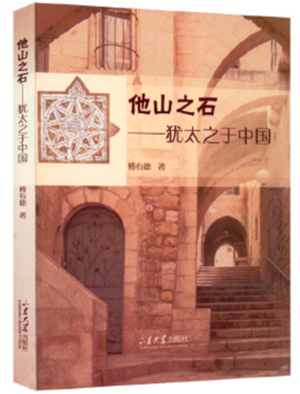
. > WHAT'S NEW > BOOKS
A comparative study of Confucianism and Jewish culture
Author : WANG HAIDONG Source : Chinese Social Sciences Today 2023-01-11

References Provided by Jewish Studies to China
References Provided by Jewish Studies to China, by Fu Youde, a professor from the School of Philosophy and Social Development at Shandong University, makes clear the similarities and differences and respective features of Jewish and Confucian cultures, enabling a more accurate understanding of these two longstanding and wise civilizations.
The Jewish culture is an “ethical religion” culture characterized by monotheism and theocentricism. Confucianism, on the other hand, is a culture of “religious ethics” featuring the Emperor of Heaven, ancestral gods, and people-centered philosophy. The author deeply and systematically compares the God-human relationship of the Jewish culture and the heaven-human relationship of Confucianism. The former emphasizes theocentricism, while the latter highlights humanism. Although the two are far apart, they can be used as mutual references. The combined functions of theocentricism and humanism, heteronomy and self-discipline are better able to adapt to modern society.
Fu had begun the journey of comparing Confucian and Jewish cultures as early as 1996 in a speech entitled “Confucianism and Judaism: A General Comparison” at an international conference. In terms of the equality of comparative objects, he agrees with the “friend as the mirror” perspective advocated by both ancient Chinese and Aristotle. He also approves of the views on equality of professors Jiyuan Yu and Chenyang Li, i.e., researchers should hold a value-neutral attitude and not be prejudiced or easily influenced by preconceptions. However, despite researchers’ efforts to maintain objectivity, the specific objects are judged, due to their own differences, by high and low, complete and partial, beautiful and ugly.
It is commendable that Fu, as a Chinese scholar, refrains from displaying partiality and following the trends of his own traditional culture. He pinpoints each side’s strengths and weaknesses and offers suggestions on cultural construction. For example, the author distinguishes between the Jewish spirit of seeking and reserving differences and the Chinese spirit of seeking common ground while reserving differences. The latter has a profound influence on the Chinese people. It has long permeated into the “big tradition” and the folk “small tradition,” influencing national ethos, habits, and thinking. The advantage is inclusiveness, but the disadvantage is that it is not conducive to knowledge innovation and development of science.
When comparing prophets and sages, the author considers that in ancient Chinese culture, the thoughts of sages, kings, chancellors and ministers, and ambitious scholars were more guiding than critical. In contrast, the Jewish prophets were more socially critical. Bilateral social functions are clear and complementary, and together form an ideal personality, that is, “social critic and moral model in one.”
Wang Haidong is a professor from the School of Marxism at Yunnan University.
Ye Shengtao made Chinese fairy tales from a wilderness
Ye Shengtao (1894–1988) created the first collection of fairy tales in the history of Chinese children’s literature...
-
How northern ethnicities integrated into Chinese nation
2023-09-18
-
Mogao caves
2023-09-12
-
Mogao Grottoes as ‘a place of pilgrimage’
2023-09-12
-
Time-honored architectural traditions in China
2023-08-29
-
Disentangling the civilizational evolution of China
2023-08-28
-
AI ethics in science fiction
2023-08-23













 2011-2013 by www.cssn.cn. All Rights Reserved
2011-2013 by www.cssn.cn. All Rights Reserved